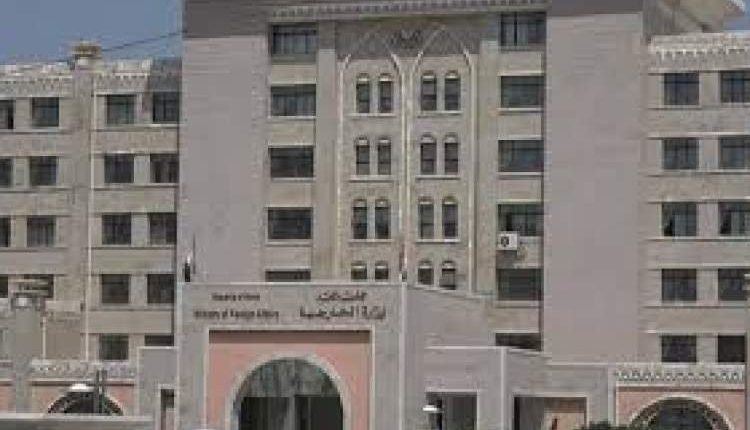Foreign Ministry Condemns UK’s Insistence in Obstructing Peace Efforts to End US-Saudi Aggression
The Ministry of Foreign Affairs condemned Britain’s insistence on exacerbating the suffering of the people of Yemen and obstructing peace efforts to end US-Saudi aggression.
The Ministry stated that Britain was hostile to the Yemeni people and brazenly supported thieves and terrorists in Yemen starting by supporting the pro-aggression government.
It added that the British ambassador’s statements publicly revealed the criminal role played by London in exacerbating the suffering of Yemenis.
Earlier, British Ambassador Michael Aaron announced London’s support for the escalating economic measures approved by the pro-aggression government against the people of Yemen.
The British ambassador revealed an upcoming meeting of the Quartet of Aggression with the aim of supporting the economic measures of the mercenary government.
The ministry also indicated that the statements of the British ambassador prove that Britain stands behind the economic war, including the policies of blockade and starvation.
It pointed out that Britain is trying hard to hinder peace efforts and push towards resuming the US-Saudi aggression.
It called on the United Nations and all free people in the world to condemn the blatant and impeding British intervention.
The ministry also called for the need to find a fair and just assessment of the economic situation in order to reduce the human suffering that may cause a potential disaster.
Recently, the Economic Council of the Saudi-backed government announced that it approved a package of new economic measures that exacerbate the suffering of the people of Yemen in addition to the blockade and aggression. These economic measures directly affect the service and living conditions of the Yemenis, especially in the southern regions.
The first step of these measures is to raise the price of the customs dollar for imported goods in foreign currency, for the second time, by an increase of 50%. This time it raised it from 500 to 750 riyals for the US dollar or its equivalent in foreign currencies.
The second step was to raise the price of fuel in Marib governorate, as it raised the price of a liter of petroleum from 175 riyals to 487.5 riyals per liter, an increase of 178.5%.
The US-Saudi aggression also decided to raise the price of a domestic gas cylinder from 2,100 riyals to 3,000 riyals, a significant increase of 43% per cylinder.
In the third step, the Saudi-backed government intends to raise the tariff for electricity and water consumption, and gradually raise the tariff on subscribers’ bills.
These measures came with the collapse of the new local currency against the dollar in the occupied governorates by 1,300 riyals per dollar, after only about a month and a half of seizing the special drawing rights of Yemen.
Saudi Arabia and the UAE, backed by the United States and regional allies, launched the war on Yemen in March 2015, with the goal of bringing the government of former Yemeni president Abd Rabbuh Mansour Hadi back to power.
The war has left hundreds of thousands of Yemenis dead and displaced millions more. It has also destroyed Yemen’s infrastructure and spread famine and infectious diseases there.
As part of its economic war, the US-Saudi aggression worked to drain about 97% of the Yemeni state’s resources, either by controlling them militarily such as oil and gas sources, freezing Yemeni foreign assets and transferring them to mercenaries and financing coalition operations, or imposing siege on the vital port of Hodeidah and the most important port after Aden, which is still in the grip of Sana’a and out of control of the aggression.

